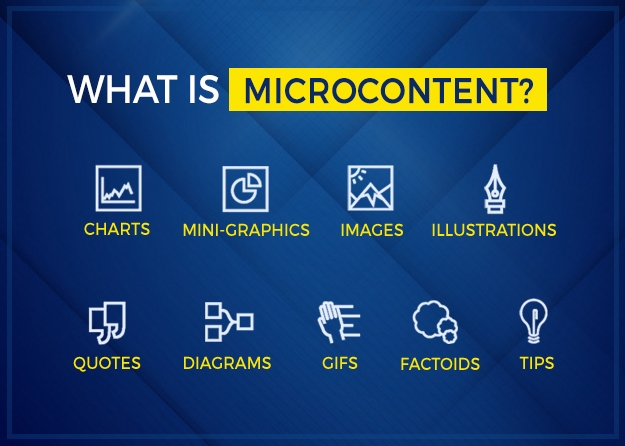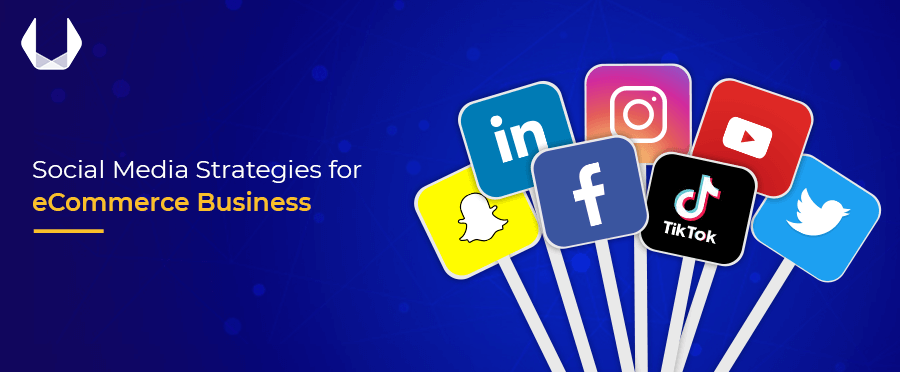According to Magento, ‘while making any buying decision almost 93% of consumers take the help of social media and 90% of them rely on recommendations made by their peers, which makes social media marketing as important as search engine marketing in the eCommerce business.
As per Shareaholic, a U.S. based content marketing publisher ‘social media is a key driver of traffic to your website’. Customers are more confident in buying products with the companies with which they engage more. Incorporating a smart social media marketing strategy should be at the core of any eCommerce organization today. Such a strategy in the long term can become the strongest catalyst for the success of your eCommerce business.
Here is a list of some winning social media marketing strategies, if used successfully can do wonders for your business.
6 Social Media Marketing Strategies for E-commerce Businesses:
1. Build Trust & Authority Through Blog

A blog is a digital asset that not only helps in SEO but also facilitates sharing thought leadership and engaging content on social media channels. It also serves as a pitch to launch new products and services and can redirect a lot of traffic to your website. Tying your blog with engaging social media posts can string together a path for a smoother buying journey of your customers. Lastly, collaborating with renowned bloggers and influencers can magnify the growth and engagement of your audience.
Here are a few inspiring examples of eCommerce companies that made the best use of their blogs.
- Myntra, India’s major eCommerce portal for fashion and lifestyle, with their thought-provoking articles, has become an opinion leader in their industry. By placing product links strategically within their blog has led to a better conversion rate.
- Similarly, an emerging eCommerce fintech company Grow has built their blog around the most common investment-related doubts and conversations, which has greatly amplified its reach. Social Media For E-Commerce
Taking reference from them, many organizations have started applying these social media marketing strategies to their own blogs for engagement and conversion optimization.
2. Creative Communication Design
Make sure the entire aesthetics and color scheme of the post resembles the core values of the brand. A/B Testing of post creative or content is another effective way of conversion optimization.
Using high conversion keywords in your social media posts can also drastically increase your product’s visibility and reach. It is already proven that well-researched keywords have the potential to reach beyond your immediate followers. Similarly, making use of hashtags makes your content more discoverable on social media platforms.
3. Engaging Campaigns Promotional Offers
Discount & giveaway campaigns can be very effective eCommerce social media marketing strategy . A perfect example of this is Lenskart which is an eCommerce for eye care and spectacles that has gained a lot of success in their promotional social media campaigns where they provide a free coupon of Rs. 150 on any new registration. They have been quite successful in creating a buzz about their products on social media platforms. One of their campaigns had garnered 1.6 million hits on Facebook and 6000 plus tweets on Twitter which is no small feat to achieve.
Similarly, incorporating polls in your posts will not only magnify engagement but also provide you with deep insight into your audience’s thought process and behavior.
4. Invest in Social Media Marketing Ads
As per Sprout Social, a leading social media management consulting company, ‘89% of marketers use Facebook in their brand marketing efforts’. Such massive use of Facebook ads by marketers confirms that social media ads are extremely helpful in elevating engagement and reach.
Before investing in any social media ads, make sure the audience of that platform resonates with your ideal customer base. The platform should be able to elevate your brand image and level of communication with your target audience.
Today, almost every social media platform offers an assortment of advertisement options. Facebook and Instagram recently added dynamic product ads in its ad formats portfolio. Dynamic product ads automatically start promoting your products to those who have expressed their interest in products on your website, app or anywhere on the internet. With such ads, Airbnb which is a popular travel site has been able to reduce its acquisition cost by 47% and reach 238 million people worldwide.
5. Leverage the Power of Data
Social media platforms have inherent analytics tools like Facebook Insights, YouTube Analytics, etc. Where you are able to track your audience thought process, buying behavior, attribution and a lot of other aspects which lets you monitor your paid advertising campaigns. Today is an era of performance-based communication where before posting anything or launching any new ad campaign you can make use of your historic data like what type of post received the most engagement or what time of day most buyers were online. Today, marketers strive to connect all the dots and try to weave a streamlined path for the customer buying journey. Social Media For E-Commerce
Reports on attribution, be it based on sessions or conversions, are indispensable to identify the sources which contribute the most in conversions. Similarly, social media dashboards play a pivotal role in strategic decision making. It collates all social media metrics and facilitates you to make strategic decisions based on real-time data and eliminate any guesswork.
6. Embrace Emerging Platforms
There is social media clutter on the internet, due to which conventional social media marketing strategies do not pay off and sometimes they even backfire. This happens as businesses are unable to reach their existing and potential customers at the right time and in the right place. Many companies today employ the latest social media platforms to reach new audiences who are not fond of regular social media platforms like Facebook and Instagram. Social Media For E-Commerce
Let us take an example of TikTok here. It is an emerging video-sharing social media platform owned by a Chinese company ByteDance. In India alone, it has close to 120 million active users. Flipkart, an Indian e-commerce company has garnered more than three billion views on a video they uploaded on TikTok. They have used the platform during their popular campaign ‘Big Billion Days’. Similarly, there are a host of Chinese brands such as Vivo, Oppo and Club Factory who have already tasted success on this platform.
The first movers always have an advantage over the companies that follow later. You can leverage the full power and potential of these emerging social media platforms. Continue Reading…
